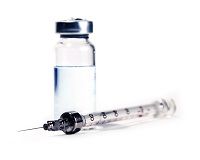Concerns over Insulin Price Hikes
If your diabetic patients are feeling a pinch in their pockets, insulin costs may be to blame.

If your diabetic patients are feeling a pinch in their pockets, insulin costs may be to blame.
Insulin costs are rising, a new study published in the April 5 issue of the Journal of the American Medical Association shows.
In an analysis that examined expenditure trends broken out for different classes of anti-hyperglycemic medications, along with changes in usage and price for each, researchers showed that the cost of insulin in particular is going up.
The analysis, published in the April 5 issue of the Journal of the American Medical Association, used individual and prescription level data from 27,878 people with diabetes captured between 2002 and 2014 in the Agency for Healthcare Research and Quality’s Medical Expenditure Panel Survey.
The study showed that the prevalence of diabetes increased from 5.2 percent in 2002-2004 to 7.7 percent in 2011-2013. At the same time, the quantity of insulin used per patient increased from 171 mL to 206 mL.
While the prevalence of diabetes and amount of insulin used went up, so did the cost and average expenditures per patient. The cost rose from $231 in 2002 to $736 in 2013. By 2013, the estimated expenditure per patient was $508 for analog insulin and $228 for human insulin. This was significantly greater than the combined expenditure on all other anti-hyperglycemic medications of $503.
Notably, insulin costs have risen much more than other anti-glycemic medications. The average price per milliliter of insulin increased by 197 percent from $4.34 per milliliter in 2002 to $12.92 per milliliter in 2013, whereas the average price of dipeptidyl peptidase-4 (DPP-4) inhibitors increased by 34 percent from $6.67 per tablet in 2006 to $8.92 in 2013. Meanwhile, the average price of metformin decreased by 93 percent from $1.24 per tablet in 2002 to $0.31 per tablet in 2013.
“Significant changes in mean price of insulin, relative to comparator therapies, suggest a need to reassess the effectiveness and cost-effectiveness of alternative anti-hyperglycemic therapies,” the authors, led by Philip Clark, PhD, of the University of Melbourne, Australia, wrote in the article.